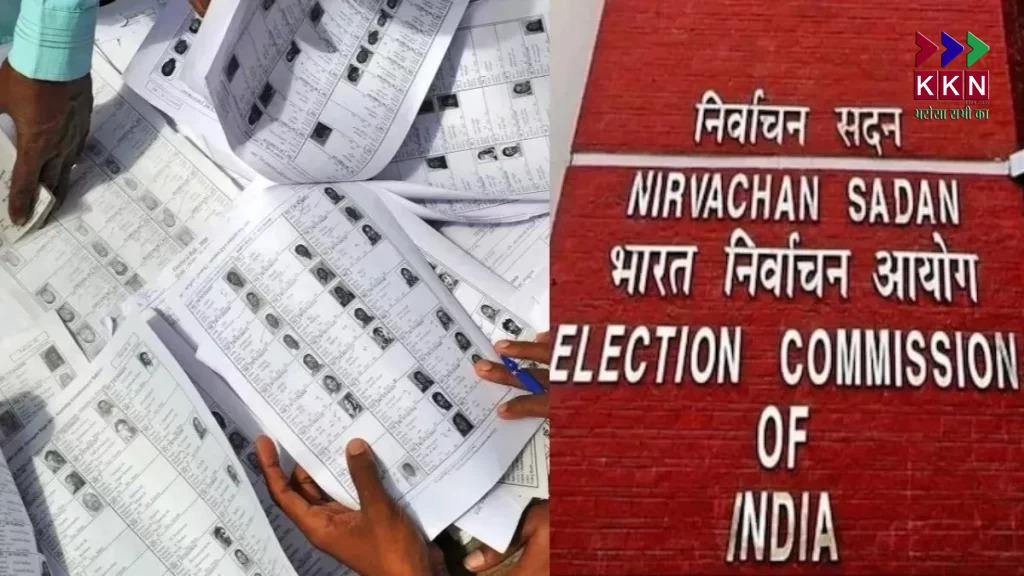
Bihar has recently seen a sweeping revision of its voter rolls under the Special Intensive Revision (SIR) process. From a total voter base of 7.2 crore, over 65 lakh names have been removed. More than one-third of these—22 lakh—were attributed to deceased voters. The remaining deletions arose from migration, inter-state shifts, and cross-border familial ties, especially with Nepal. In this wave of removals, Patna and Madhubani districts stood out with the highest numbers.
Why So Many Names Removed from Patna
In Patna alone, around 3.95 lakh voter entries were struck off across 14 assembly constituencies. Booth-level officials (BLOs) who visited door-to-door reported that numerous households were either vacant, shifted, or operating with rental changes. Frequent inter-district migration added to the confusion. Despite distributing fresh enrolment forms through sanitation workers, many families failed to register again. As a result, their names vanished from the draft voter list.
Experts cited nuclear family formations and splitting households as contributing factors. With the family members unaware that their names were removed, some were unaware of the deletion altogether. Instances also emerged where some names appeared in the deceased list even as the individuals were alive; conversely, vital records confirmed some deaths but their names remained on the rolls.
Other Affected Districts: Demographics and Deletions
Northern Bihar witnessed significant reductions in multiple districts. Madhubani lost about 3.5 lakh names, Gopalganj saw a drop of approximately 3.1 lakh, while Darbhanga saw 2 lakh names vanish. Officials explained that many voters had migrated temporarily or permanently, making them ineligible under SIR criteria. Since they no longer resided in the state, their entries were removed.
Nepal Factor: Errors due to Cross-Border Residency
An extraordinary challenge surfaced in the Seemanchal belt. Officials flagged that many names in eastern and northern districts such as East and West Champaran, Sitamarhi, Supaul, Araria, and Purnia belonged to individuals with relatives in Nepal, Bangladesh, or Myanmar. Some families had relocated to Nepal, and others maintained dual residences. In some cases, women had been married into Bihar-based households while still holding foreign residency ties. These irregularities led to legitimate deletions due to citizenship clarifications.
What Is the SIR and Why It Matters
The Special Intensive Revision is designed to ensure voter rolls are accurate, current, and free of invalid entries. Voters who have died, moved out, or become ineligible due to non-residency must be removed. While the scale of deletions in Bihar is high, officials maintain that the exercise aims to prevent electoral fraud and uphold democratic integrity. The revised draft list is now out, and citizens have the opportunity to raise claims or objections if they feel wrongly excluded.
Public Response and Controversies
Following the release of the draft list, numerous objections have poured in. Many residents have claimed their names were wrongly added to the deceased category or removed without warning. Civic groups and rights activists have urged local officials to verify databases and provide swift re-inclusions where appropriate.
However, critics argue that even lawful deletions caused undue hardships. For example, migrant workers who regularly return to Bihar were caught off-guard. Since they were absent during BLO visits, their names disappeared. They now grapple with documentation and re-registration in time for elections.
Administrative Action and Appeals
The Election Commission has provided a mechanism to correct errors. Voters can submit claims supported by identity documents and proof of residency. Officials must respond within a prescribed period. Appeals submitted now will be reviewed during verification. If accepted, names may be restored before finalization.
Authorities have also promised outreach camps in Patna and affected districts. These camps will help unregistered households, verify deaths cited incorrectly, and counter identity mistakes. The goal is to reduce grievances and re-enroll eligible individuals before the electoral roll is finalized.
The Way Forward: Technology and Outreach
Following the controversy, Bhooth level officers have been advised to be more exhaustive in future revisions. A multi-pronged strategy is underway: rigorous PAN-based verification, closer coordination with post offices and census data, and better community communication. Additionally, the use of mobile vans, public notices, and local media is expected to increase awareness about enrolment deadlines and correction procedures.
Bihar’s SIR exercise is a cautionary tale of balancing electoral integrity with citizen inclusion. While removing 65 lakh names may help secure the voting process, it has also cast uncertainty over millions. The disproportionate impact on Patna reflects rapid urban migration and civic disconnect. Cross-border and migrant family dynamics highlight the complexity of modern citizenship.
The critical test now is the appeal and correction phase. If the Election Commission ensures a transparent, empathetic redo procedure, many affected citizens may regain their rightful status. However, if no robust corrective mechanisms follow, Bihar risks disenfranchising genuine voters and undermining public trust in electoral fairness.